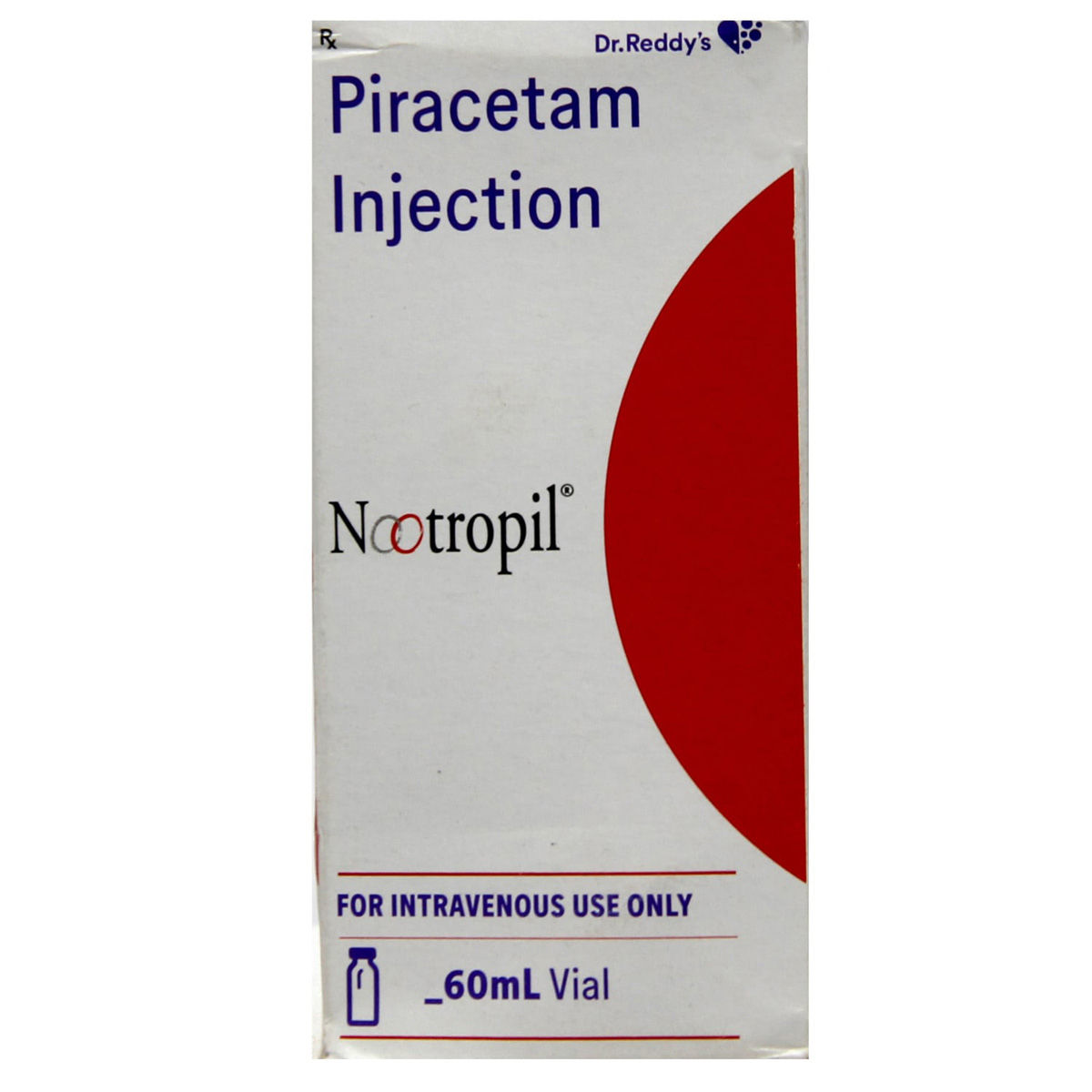Neurocetam Injection 15 ml
₹171*
MRP ₹190
10% off
₹171*
MRP ₹190
10% CB
₹19 cashback(10%)
Free Delivery
With Circle membership
(Inclusive of all Taxes)
This offer price is valid on orders above ₹800. Apply coupon PHARMA10/PHARMA18 (excluding restricted items)
Know Your Delivery Time
Provide Delivery Location


Available Offers
 Prescription drug
Prescription drugWhats That

Secure Payment

India's Most Trusted Pharmacy

Genuine Products
Composition :
Manufacturer/Marketer :
Consume Type :
Return Policy :
Expires on or after :
About Neurocetam Injection
Neurocetam Injection belongs to a group of medicines called GABA analogues used to treat myoclonus (a movement disorder). Additionally, Neurocetam Injection is also used to treat memory disorders, vertigo, and dyslexia (learning disorder) in children above 8 years.
Neurocetam Injection contains 'Piracetam' that acts on the brain and nervous system, thereby protecting against shortness of oxygen. It also improves the activity of a chemical messenger called acetylcholine which helps in communication between brain cells.
In some cases, Neurocetam Injection may cause side effects such as diarrhoea, nausea, vomiting, headache, abdominal pain, and pain at the site of injection. Consult your doctor if you experience any of these side effects persistently.
Consult your doctor if you are pregnant or breastfeeding. Consumption of alcohol is not recommended during treatment with Neurocetam Injection. Avoid driving or operating machinery as Neurocetam Injection may cause drowsiness, dizziness and fatigue. Neurocetam Injection is not recommended for children below 8 years.
Uses of Neurocetam Injection
Directions for Use
Medicinal Benefits
Neurocetam Injection is a nootropic drug which belongs to a group of medicines called GABA analogues. Neurocetam Injection is used to treat myoclonus (a movement disorder). Additionally, Neurocetam Injection is also used to treat memory disorders, vertigo, and dyslexia (learning disorder) in children above 8 years. Neurocetam Injection acts on the brain, and nervous system thereby protecting against shortness of oxygen. It also improves the activity of a chemical messenger called acetylcholine which helps in communication between brain cells.
How Neurocetam Injection Works
Storage
Side Effects of Neurocetam Injection
- Diarrhoea
- Nausea
- Vomiting
- Headache
- Abdominal pain
- Pain at the site of injection
What if I have taken an overdose of Neurocetam Injection
Drug Warnings
Do not take Neurocetam Injection if you are allergic to any of its contents; if you have/had end-stage kidney disease, Huntington's chorea disease (degeneration of nerve cells in the brain) or brain haemorrhage. Inform your doctor if you have bleeding problems or kidney dysfunction. Consult your doctor if you are pregnant, planning for pregnancy or breastfeeding. Avoid driving or operating machinery as Neurocetam Injection may cause drowsiness, dizziness and fatigue. Neurocetam Injection is not recommended for children below 8 years. Keep your doctor informed about your health condition and medications to rule out any interactions.
Drug-Drug Interactions
Drug-Drug Interactions
Login/Sign Up
Drug-Food Interactions
Drug-Food Interactions
Login/Sign Up
Diet & Lifestyle Advise
- Maintain proper weight by following a healthy diet.
- Exercise regularly as it helps in less cognitive decline and brain volume loss.
- Avoid smoking and alcohol consumption.
- Try to avoid stress by practising meditation or yoga.
- Include fruits and vegetables in your diet as they contain antioxidants.
- Avoid late-night exercises as they can increase muscle twitches.
- Create a bed time routine as it helps in relaxation and stress reduction.
- Follow a healthy lifestyle as it helps in improving overall health and possibly protects the brain.
Habit Forming
Therapeutic Class
Neurocetam Injection Substitute

Nootropil Injection 15 ml
₹13.38per tabletNootropil Injection 60 ml
₹9.60per tabletCEREFLO INJECTION 10ML
₹7.38per tabletCERECETAM INJECTION 15ML
₹6.21per tabletPirapill Injection.60ml
by AYUR
₹8.85per tablet
Product Substitutes
Alcohol
Unsafe
Consumption of alcohol is not recommended while on treatment with Neurocetam Injection.
Pregnancy
Caution
Please inform your doctor if you are pregnant. Your doctor will prescribe Neurocetam Injection only if it is necessary.
Breast Feeding
Unsafe
Neurocetam Injection passes into breastmilk. Please inform your doctor if you are breastfeeding. Your doctor may advise you to avoid breastfeeding whilst on treatment with Neurocetam Injection or discontinue Neurocetam Injection during breastfeeding.
Driving
Unsafe
Neurocetam Injection may cause drowsiness, dizziness, and fatigue. Do not drive or operate machinery.
Liver
Caution
Please inform your doctor if you have a liver impairment before taking Neurocetam Injection. Your doctor may adjust the dose based on your condition.
Kidney
Caution
Please inform your doctor if you have kidney impairment before taking Neurocetam Injection. Your doctor may adjust the dose based on your condition.
Children
Caution
Neurocetam Injection is not recommended for children below 8 years.
FAQs
Country of origin
Manufacturer/Marketer address
Disclaimer
Author Details
We provide you with authentic, trustworthy and relevant information






















